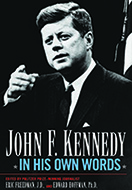To encourage collaboration between high school journalism and environmental science classes, we invite teachers to submit proposals for innovative class projects in which journalism students will report about field research by environmental science students. Our principal goals are:
- to help young prospective journalists better understand and explain to the public how science is done
- to help environmental science students learn to use the media to explain their work to the public.
- To promote environmental and science journalism.
The Knight Center intends to award 1-year grants of $2,000 to up to 3 high schools: $1,000 to the journalism program and $1,000 to the environmental science program for equipment, software or scholarships. In addition, the Knight Center will pair each school with a professional journalist to serve as a mentor to participating students and teachers.
Here are the details:
- Your proposal must include a project description (750 words maximum), the names and contact information for a partnering journalism and environmental science teacher from the same high school; grade levels of participating classes; and the estimated number of students in the participating classes. A proposal form is attached.
- Your projects must generate student-produced news or feature stories with visuals (photos and/or graphics) for print, online, audio and/or video that your school will disseminate. The Knight Center will also disseminate these stories to the public through our website, and some stories may be posted on Great Lakes Echo (greatlakesecho.org), the center’s award-winning online regional environmental news service.
- Grantees must comply with MSU financial reporting procedures.
- Grantees (students, teachers and professional mentors) will be invited to a one-day workshop at MSU in Fall 2022.
- Application deadline: November 29, 2021. Awards will be announced by January 14, 2022. Projects should begin in March 2022 and be completed with a final report by the end of December 2022.
- Read about the successful 2018-2019 grantees at https://knightcenter.jrn.msu.edu/2019/03/06/four-high-schools-win-journalism-environmental-science-grants-from-the-knight-center/
Send along a Grant Application Cover Sheet with the following information:
- School name and address
- Participating journalism teacher (name, email, phone)
- Participating environmental science teacher (name, email, phone)
- Project description (750 words maximum): What do you intend to do (scientific research
and journalistic coverage) and how? What are your goals for the project? How will you
assess accomplishments? - Titles and grade levels of participating classes:
- Journalism:
- Environmental science
- Name, title, email and phone of administrator authorizing submission of the proposal:
Submit by November 29th to Barb Miller at mille384@msu.edu
If you have questions, email Eric Freedman at freedma5@msu.edu

 Knight Center director Eric Freedman is the lead editor of
Knight Center director Eric Freedman is the lead editor of 
 This book will be essential reading for students, natural resource managers, government officials, environmental activists, and academics interested in conservation and biodiversity, environmental communication and journalism, and public policy.
This book will be essential reading for students, natural resource managers, government officials, environmental activists, and academics interested in conservation and biodiversity, environmental communication and journalism, and public policy. Audible has just released an
Audible has just released an